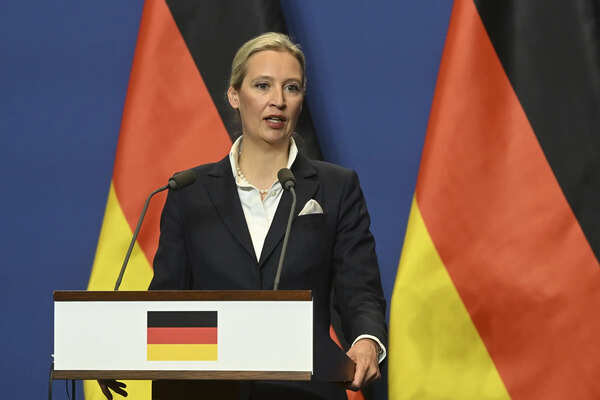The Alternative for Germany (AfD) achieved a historic milestone in the 2025 German federal elections, securing approximately 20.8% of the vote and establishing itself as the second-largest political force in the country. This performance marks a significant increase from its previous results, with the party gaining substantial traction, particularly in eastern Germany.
Despite these gains, the AfD remains politically isolated, as mainstream parties—including the election-winning Christian Democratic Union (CDU) and its Bavarian sister party, the Christian Social Union (CSU)—have ruled out any collaboration with the far-right party. This stance effectively excludes the AfD from participating in the government.
AfD’s Election Success: Key Figures and Regional Gains
- Nationwide Vote Share: Approximately 20.8%, positioning it as the second-largest party.
- Comparison to Previous Elections: This result signifies a substantial increase from prior performances, reflecting growing support.
- Regional Strength: The AfD has become the strongest political force in eastern Germany, outperforming other parties in states such as Saxony, Thuringia, and Brandenburg.
- Appeal Among Young Voters: Exit polls indicate that the AfD has garnered significant support from 18-24-year-olds, suggesting a shift among younger voters towards nationalist and anti-establishment platforms.
The Role of Elon Musk and International Endorsements
The AfD’s rise has been amplified by public endorsements from high-profile figures, notably Tesla CEO Elon Musk and U.S. Vice President JD Vance. Their support has drawn global attention to the party’s campaign, particularly through social media platforms.
Musk, who has increasingly aligned himself with right-wing politics, publicly endorsed the AfD, stating: “Only the AfD can save Germany.”
This endorsement from one of the world’s most influential entrepreneurs, along with support from JD Vance, has helped legitimize the AfD’s anti-immigration and nationalist message, especially among conservative and libertarian-leaning voters.
Factors Contributing to AfD’s Performance

Alice Weidel, the Alternative for Germany (AfD) party’s candidate for chancellor, and Hungarian Prime Minister Viktor Orban, not pictured, hold a press conference following their meeting in the government headquarters in Budapest, Hungary, Wednesday, Feb. 12, 2025. (Szilard Koszticsak/MTI via AP)
Anti-Immigration Stance
The AfD has dominated political discourse with calls for closed borders and restrictions on asylum seekers, resonating particularly in regions facing economic challenges and demographic shifts.
Public Discontent with the Ruling Coalition
The previous government’s handling of economic issues, rising energy prices, and immigration has led to voter dissatisfaction, which the AfD has effectively capitalized on.
Influence of Social Media and High-Profile Endorsements
Platforms like X (formerly Twitter) have played a significant role in amplifying the AfD’s message, with endorsements from figures like Elon Musk increasing the party’s visibility.
Support from Young Voters
The AfD has made notable inroads among younger voters, a demographic traditionally leaning towards left-wing parties. This shift may be attributed to economic uncertainties and a reaction against political correctness.
Political Isolation and Coalition Prospects
Despite its electoral success, the AfD remains politically isolated. Mainstream parties, including the CDU/CSU, have categorically ruled out forming coalitions with the AfD. CDU leader Friedrich Merz emphasized fundamental policy differences, particularly regarding the European Union and foreign policy, as barriers to any potential cooperation.
Future Outlook for the AfD
Looking ahead, AfD co-leader Alice Weidel has expressed ambitions to further elevate the party’s status, stating: “We will overtake the CDU/CSU. And then we will get a mandate to govern.” While the AfD’s recent gains signify a notable shift in Germany’s political landscape, the party faces ongoing challenges, including legal scrutiny, public protests, and steadfast resistance from the political establishment. The coming years will be pivotal in determining whether the AfD can sustain its momentum and overcome the barriers to entering government.


